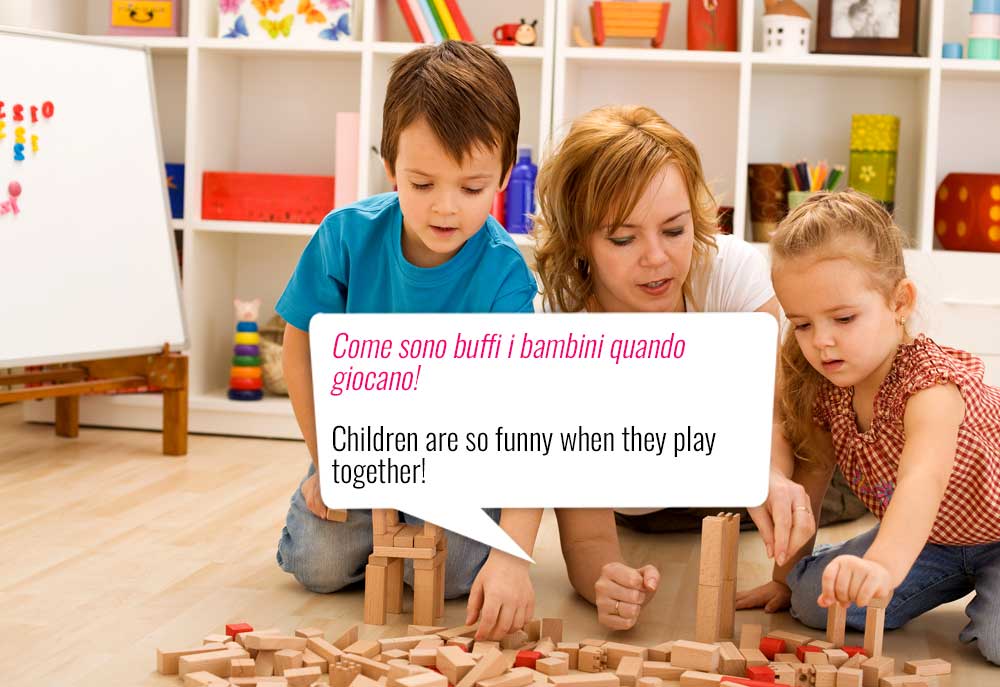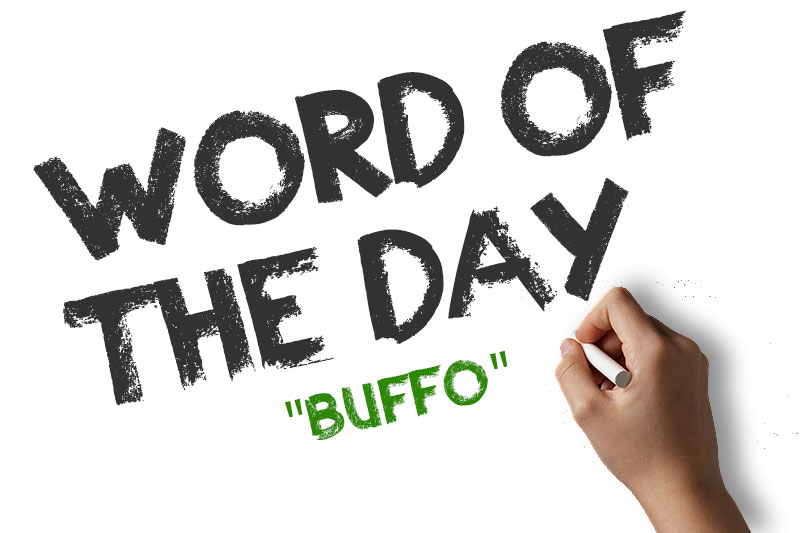Today’s word is wonderful, because just saying it cheers you up. Buffo (boof-foh) means funny or silly, in a nice, good-hearted way.
Something is “buffo” when it makes you smile because of its awkwardness, clumsiness or because it’s just curious, just like in che buffo quel cappello! (That hat is so funny!).
But there isn’t an inch of malice in buffo, because when you use it, you never mean to be offensive at all. It’s different from ridicolo, that we use when we talk about something that is funny, yes, but for which we may even have some contempt. If I say, la tua poesia è così buffa, it means your poem is funny, and that it puts me in a good mood. We didn’t have a type of opera in the 18th and 19th century called “buffa” for nothing! But if I say, la tua poesia è ridicola, I just think it’s ridiculous, that it’s worth only mockery.
You see the difference?
For those interested in etymology, buffo comes from the noun buffone, a person who likes to make jokes or that behaves in a silly manner. Buffone was also, in older times, the court’s jester.
But buffone can also be an insult! Italians can use it when they want to let you know you’re someone who doesn’t deserve any consideration: Sei proprio un buffone! means, well… “you’re just an idiot.”

— Come sono buffi i bambini quando giocano!
— Children are so funny when they play together!

— Non fare quella faccia buffa!
— Don’t make that silly face!

— E’ buffo pensare a come ci siamo conosciuti
— It’s funny to think about how we met.




























